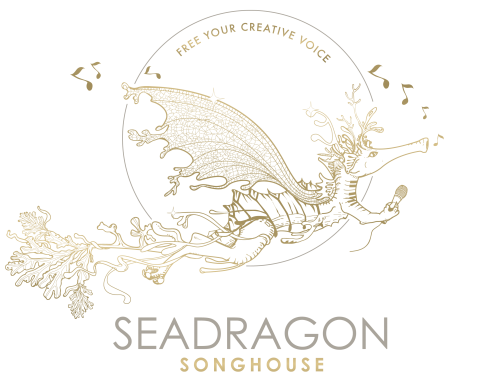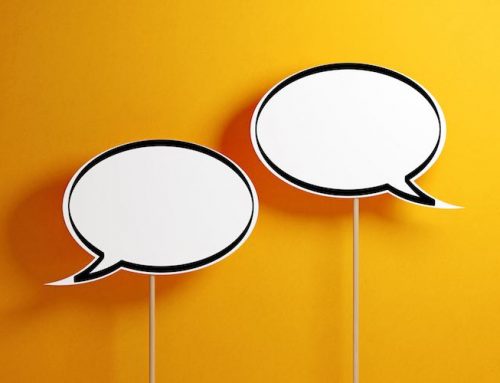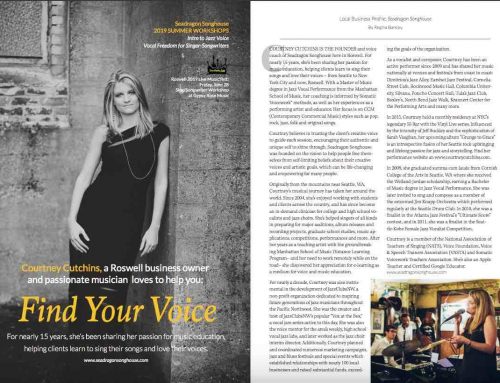
May 1, 2019 by Courtney Cutchins
Your Voice: Wild Animal, Familiar Friend
I often have fascinating philosophical discussions with my clients. It doesn’t always happen, but I find that, generally, people want to tell me their vocal story – why they enjoy singing, what types of music speak to them, why they can’t stand to listen to themselves, what musical sorrows or traumas have happened in their lives, or what their dreams and goals are for their voice that they don’t dare speak aloud to anyone else… As a voice coach, this is one of my greatest privileges. I consider it an enormous honor to simply sit and listen to someone’s experiences – and see the peace that comes over them when they feel they’ve been heard. These are important conversations to have in order to find more vocal freedom!
These discussions occasionally dive into all the ways that their voice has either saved them or hurt them. There’s an interesting dichotomy as a singer of feeling that your voice is both yourself and something else. Your voice is you – and yet, your voice is separate, with a mind of its own. Your voice is merely a tool of tissues and cartilage built into your body – but it’s also your primary way of communicating with the outside world. Your voice is absolutely vital to your existence and well-being. It may be temperamental, unstable, sensitive or strange – and the two of you have likely developed some kind of relationship – possibly without even realizing it. Is your voice your enemy? An apathetic colleague? An annoying neighbor? A mere acquaintance? A loyal companion? Your best friend?
It’s this relationship that can make or break your training and success. I’ve learned the hard way, many times, that treating your voice poorly, taking it too personally or trying to control and dominate it will. never. work. SO – I want to share an analogy which helps illustrate a healthier, more inspiring way of thinking about this.
(P.S. From here on, I’m going to capitalize the word, “Voice.” It’s intentional, don’t worry!)
Friendship
For many of us, when we think about animals, it’s easy to appreciate them and give them the benefit of the doubt. Strong and mighty animals have our admiration. Fluffy and gentle animals have our affection. Crazy animals have our sympathy. Enthusiastic animals have our gratitude. Sometimes, we have way more compassion for animals than we do for other people – or even for ourselves. (Side note: is anyone else a regular visitor of doesthedogdie.com!?)
Here’s a fun fact: when I was 13, I used to compete in agility trials with my dog, Taz. Taz was an Australian Shepherd who may have been certifiably insane. But he was loyal and loving – and brilliant – and stubborn – and we had a great time together. Sometimes he’d go left when I went right. Sometimes he’d miss the obstacle entirely. I never really knew what he’d do, but I knew he’d do it with about as much enthusiasm as one little, fuzzy being could muster.
During the same period of my life, I was developing my singing skills and willing myself to get out there and perform. Suffice it to say, as a perfectionistic introvert with performance anxiety, this process was NOT easy – or pleasant. Hanging out with my dog was at least 1000x better.
How did my experience with the dog trial compare to singing and performing?
If my dog and I messed up, no one watching really seemed to care. It was easier to move my arms and legs than it was to speak out and use my Voice. My Voice wasn’t as reliable as the rest of my body. The body language involved with agility was, for me, way easier than verbal communication. I had my dog with me, so I wasn’t out there all alone. My Voice was even more unpredictable than my dog. If my dog made a mistake, it wasn’t all my fault. If my Voice made a mistake, it was all on me. My dog and I were friends. We worked and practiced together for hours – we had established a level of trust. My Voice was unruly. Sometimes it was a jerk. I couldn’t trust it.
This rabbit hole of of negative thinking about my Voice continued for many years. It became a pattern. I felt I should have complete control over my Voice – and I was afraid that it didn’t like me. One day, however, I realized it just didn’t work that way – and my opposition and frustration with my Voice was unnecessary. Eventually, I got creative – I had to show my poor Voice some mercy. So – the question I asked myself was: “What if you thought of your Voice as a wild animal? A dog, a wolf? A beautiful, mysterious creature with its own thoughts and feelings? How would that change the way you think about it? How would that change the way you view yourself?”
The other day, I had a young client take this even one step further. She LOVES animals. And all things whimsical and fantastical. When I asked her about her “wild animal” Voice, her eyes lit up and she said, “you mean, like a familiar? From my fantasy books?” She brought her hands together and drummed her fingers as she considered the possibility of having her own pet voice-spirit-animal living in her throat. “Yes, exactly like that!” I eagerly replied. (P.S. Full disclosure: no, that wasn’t exactly what I meant, but if that radiant bit of insight works for her, then it totally works for me!) “What would your Voice-Familiar look like? Sound like? Could you journal on that and tell me more about it next week?” I asked.
As a fantasy fan myself, I began to imagine all of the animal concepts from my favorite stories: Lyra’s daemon in His Dark Materials, Merlin and Archimedes from The Sword and the Stone, the many patronuses and creatures in Harry Potter, basically any Disney movie whose main character has an animal sidekick to keep them company (Mushu, Abu, Meeko & Flit, Sebastian & Flounder, Pegasus, etc)… For those of you unfamiliar with “familiars,” the general definition is that these are animal guardians or spirits that offer friendship and protection to their person on their journey. In some stories, these animals are even a literal part of the person – a piece of their soul or power – and the two are deeply connected and reflective of each other. Suffice it to say, there’s a ton of mythology and lore surrounding the subject, so do with that what you will.
Whether or not you connect with the “wild animal” idea – or the “familiar” concept – what I think we all have in common, as singers and vocalizers of any kind, is that we all want to feel less alone in the journey of finding our Voice and speaking our truth. We all want to feel like someone has our back. And who hasn’t always dreamed of having the coolest pet ever – one that can go with you anywhere and be there whenever you need help? Something that understands you completely? Something that’s powerful and brave? Something you can love that loves you back unconditionally?
Well, there it is, that’s your Voice!
The Mind/Voice Relationship
The thing that most often gets in our way is our own selves. It’s our many thought-processes about our Voice. It’s our paradigms and perspectives that shape everything thereafter. So, if you identify with this story, try to point to what those paradigms are for yourself. Try to reason, logically, through your mind/voice relationship. Do you believe your Voice is out to get you? Do you think you’re a victim of the music industry? Has your Voice let you down, time and time again? Do your struggles constantly overshadow your successes?
Once you can identify those challenges, you can begin to overcome them – and start to cultivate a more defined understanding of your Voice. As I mentioned earlier, it’s an intimate piece of yourself – which means, whatever you’re telling your Voice affects the rest of you – and whatever you’re telling the rest of yourself is affecting your Voice. Because of this, as humans, we tend to take our Voices personally, which is quite common and totally understandable. Singing is more than just making music – it’s standing symbolically naked and exposed for all the world to see, hear and judge. When our Voices don’t do exactly what we want, we feel ashamed. We blame them, we blame our bodies, we blame ourselves and everyone suffers. But this isn’t realistic – nor does this line of thinking serve us well.
Also, consider that your Voice is affected by your psychology, your whole lifetime of experiences, the food you eat, the air you breathe, allergies, reflux, illness and the many speaking and breathing habits of our daily lives. Being a Voice is hard work! Cut it some slack, will ya?
When we put a little distance between our minds and our Voices, we’re able to grow and adapt in a more positive, healthy way. You’ve been tasked with caring for your Voice, just like your Voice has been tasked with caring for you. Treat it with the same compassion you would a beloved, magical, living thing – one that is there to help you with your mission. With the “animal” mindset, we’re able to say things like: If my Voice gives out, it’s not anyone’s fault. If I get sick, my Voice needs help. If my Voice holds back, it’s just afraid or trying to protect me. If I make a mistake, we’ll do better next time. If other people are cruel to my Voice, I’ll keep it safe. If my Voice is imperfect, that’s perfectly acceptable. If my Voice is uncontrollable, perhaps I need to work with it in a new or different way. My Voice has character – and a unique personality. It doesn’t hate me, it just does what wild animals do. My “wild animal” Voice and I can take on the world together.
Learn to be your own “Voice Whisperer.”
So, give it a break. Show it some love. Pet its furry mane, feed it some carrots, offer it your patience – and maybe a lozenge. Don’t pull its tail – and stop yelling at it. Figure out how to make peace with one another. You’re a team – and you’re here, ultimately, to help each other.
Your Voice may just turn out to be the very best friend you never knew you had.
Please give us your thoughts and feedback in the comments below – we’d love to hear from you! Or, join in the conversation on social media: follow us on Instagram or like us on Facebook!
Sign up for our newsletter to have blog posts and creative ideas delivered right to your inbox. We love to stay connected!





